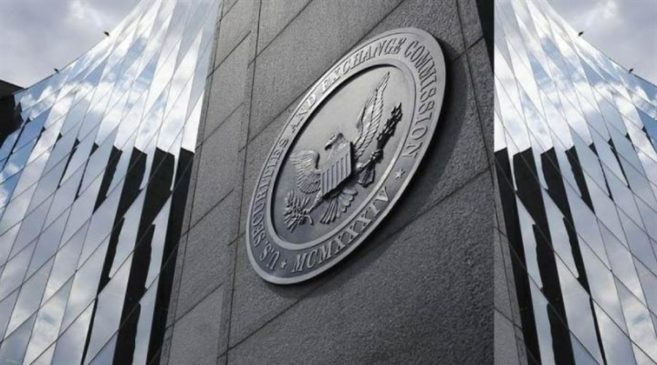The
U.S. Securities and Exchange Commission (SEC) is showing no signs of slowing
down in its efforts to enforce securities laws within the cryptocurrency space,
according to David Hirsch, the head of the agency’s Crypto Assets and Cyber
Unit.
Speaking
at the Securities Enforcement Forum Central in Chicago, Hirsch emphasized the
SEC’s commitment to scrutinizing crypto exchanges and decentralized finance
(DeFi) projects, following the recent legal actions against Coinbase Inc. and
Binance.
Hirsch’s
enforcement office has been unusually active, and he made it clear that they
are actively investigating other firms engaged in activities similar to those
observed at Coinbase and Binance.
He noted that compliance issues within the industry extend beyond just these
two entities.
“We’re
going to continue to bring those charges,” stated Hirsch, underscoring the
SEC’s determination. He mentioned that the agency has several other businesses
within its crosshairs that are operating in ways similar to the aforementioned
exchanges.
A
Shift in Enforcement Approach: SEC’s New Strategy in
Cryptocurrency Cases
The
SEC has already been involved in complex crypto-related cases in federal
courts, acknowledging that success has not always been guaranteed, as evidenced
by the ongoing appeal in the Ripple case.
Hirsch
stressed that the SEC’s interest in the cryptocurrency space goes beyond
high-profile exchanges. “We’re going to continue to be active as to
intermediaries,” he stated.
“That
can be brokers, dealers, exchanges, clearing agencies, or any others who are
active in this space, are within our jurisdiction and not meeting their
obligations, either through registration or failure to provide adequate or
complete disclosures.”
Moreover,
Hirsch made it clear that DeFi projects would not escape the SEC’s scrutiny.
“We’re going to continue to conduct investigations, we’re gonna be active
in the space, and adding the label of DeFi is not going to be something that’s
going to deter us from continuing our work,” he affirmed.
The
SEC’s approach to cryptocurrency enforcement represents a
significant departure from its traditional approach, which usually involved
targeting misdeeds at regulated businesses, often large Wall Street firms with
substantial legal resources, that quickly required settlements.
However,
crypto companies, facing charges that could threaten their very existence, have
been more inclined to contest the SEC in court.
One
challenge for the SEC in this domain is its finite
enforcement budget, which is often dwarfed by the financial giants it typically
faces, limiting its capacity to pursue cases aggressively.
Hirsch
acknowledged this limitation, stating, “We do have a lot of litigation
going on.”
The event’s moderator and a former
SEC crypto enforcement chief, A. Kristina Littman, commented, “It feels like you’re at
capacity.”
The
SEC’s unwavering pursuit of crypto exchanges and DeFi projects demonstrates its
commitment to regulatory oversight within the evolving digital asset landscape,
setting the stage for continued legal battles and potentially shaping the
future of crypto regulation in the United States.
The
U.S. Securities and Exchange Commission (SEC) is showing no signs of slowing
down in its efforts to enforce securities laws within the cryptocurrency space,
according to David Hirsch, the head of the agency’s Crypto Assets and Cyber
Unit.
Speaking
at the Securities Enforcement Forum Central in Chicago, Hirsch emphasized the
SEC’s commitment to scrutinizing crypto exchanges and decentralized finance
(DeFi) projects, following the recent legal actions against Coinbase Inc. and
Binance.
Hirsch’s
enforcement office has been unusually active, and he made it clear that they
are actively investigating other firms engaged in activities similar to those
observed at Coinbase and Binance.
He noted that compliance issues within the industry extend beyond just these
two entities.
“We’re
going to continue to bring those charges,” stated Hirsch, underscoring the
SEC’s determination. He mentioned that the agency has several other businesses
within its crosshairs that are operating in ways similar to the aforementioned
exchanges.
A
Shift in Enforcement Approach: SEC’s New Strategy in
Cryptocurrency Cases
The
SEC has already been involved in complex crypto-related cases in federal
courts, acknowledging that success has not always been guaranteed, as evidenced
by the ongoing appeal in the Ripple case.
Hirsch
stressed that the SEC’s interest in the cryptocurrency space goes beyond
high-profile exchanges. “We’re going to continue to be active as to
intermediaries,” he stated.
“That
can be brokers, dealers, exchanges, clearing agencies, or any others who are
active in this space, are within our jurisdiction and not meeting their
obligations, either through registration or failure to provide adequate or
complete disclosures.”
Moreover,
Hirsch made it clear that DeFi projects would not escape the SEC’s scrutiny.
“We’re going to continue to conduct investigations, we’re gonna be active
in the space, and adding the label of DeFi is not going to be something that’s
going to deter us from continuing our work,” he affirmed.
The
SEC’s approach to cryptocurrency enforcement represents a
significant departure from its traditional approach, which usually involved
targeting misdeeds at regulated businesses, often large Wall Street firms with
substantial legal resources, that quickly required settlements.
However,
crypto companies, facing charges that could threaten their very existence, have
been more inclined to contest the SEC in court.
One
challenge for the SEC in this domain is its finite
enforcement budget, which is often dwarfed by the financial giants it typically
faces, limiting its capacity to pursue cases aggressively.
Hirsch
acknowledged this limitation, stating, “We do have a lot of litigation
going on.”
The event’s moderator and a former
SEC crypto enforcement chief, A. Kristina Littman, commented, “It feels like you’re at
capacity.”
The
SEC’s unwavering pursuit of crypto exchanges and DeFi projects demonstrates its
commitment to regulatory oversight within the evolving digital asset landscape,
setting the stage for continued legal battles and potentially shaping the
future of crypto regulation in the United States.



